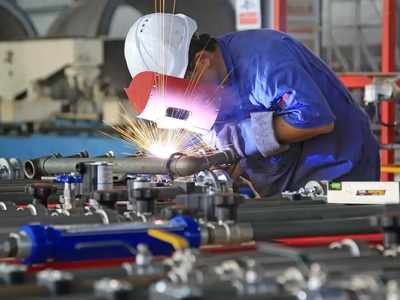

(Representative image)
BENGALURU: India factory activity It grew in August for the first time in five months as the easing of lockdown restrictions spurred a rebound in domestic demand, a survey of private companies showed Tuesday, although companies continued to cut jobs.
But the rebound is unlikely to signal rapid change in the Indian economy, which contracted at its steepest recorded pace of 23.9% per year last quarter. It was expected to remain in recession this year, a Reuters poll showed on Friday.
The Nikkei Manufacturing Purchasing Managers’ Index, compiled by IHS Markit, rose to 52.0 in August from 46.0 in July, above the 50 level that separates growth from contraction for the first time since March.
“The August data highlighted positive developments in the health of the Indian manufacturing sector, signaling movements towards a recovery from the second-quarter recession,” said Shreeya Patel, an economist at IHS Markit.
“However, not everything was positive in August, delivery times lengthened at another marked pace amid continued Covid-19 outages.”
While the sub-indices tracking overall demand and production reached their highest levels since February and expanded for the first time in five months, external demand contracted for the sixth month in a row, its longest decline since March 2009.
Furthermore, companies cut their workforce for the fifth month in a row, adding to the millions who have already lost their jobs due to disruptions related to the coronavirus, which is spreading faster in India than anywhere else in the world. .
Although input prices rose at the strongest rate in nearly two years, companies have cut their product prices for four months to boost demand.
That is unlikely to ease overall inflationary pressure, which has remained above the Reserve Bank of India’s medium-term target of 4% since September 2019.
Accelerating inflation prompted the central bank to unexpectedly keep interest rates on hold last month, but according to a Reuters poll it will cut its key rate by 25 basis points next quarter to 3.75% and then pause until at least early 2022.
Still, the factory survey showed optimism about the next 12 months reaching their highest level in a year.
.